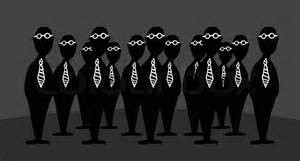Most people are associated with entities which fulfill both innate and practical needs. Associations might be with:
People/ Celebrities
Companies
Institutions
Events
Groups
Religious bodies
And, more
Such associations may be deliberate, while others are simply the result of either business involvements or lifestyle.
People have loose affiliations and also strong bonds which they actively promote and advertise.
We should care about these affiliations because in general, our associations are a significant part of how we are perceived and regarded.
So, specifically why might people create these ties and connections? It can be for any number of reasons. They might wish to:
Promote their Importance
Stimulate Business and Social Opportunities
Enjoy a sense of Belonging
Sustain their Self-Image
And, so on.
Certainly it’s been common for many to enhance their own personal profiles and agendas by joining prestigious clubs, attending the right schools, being seen with particular people, acquiring specific credentials, etc.
Historically, having a high profile, positive association is usually a business and social advantage.
But are all associations good? Not always; when tied closely with one group you can often be automatically excluded from another. Certainly, any particularly strong alignment inherently inhibits participation in counter-culture aligned functions.
What does an affiliation with a group or organization say about us? Most people would assume we:
Share Values
Have Common Thoughts & Ideas
Behave similarly
Help and Support one another
Share Culture
Enjoy similar Status
Are generally, birds of a feather
Yet there are affiliations that aren’t always what we’d prefer. Sometimes we have inadvertent ties that are not beneficial.
Imagine you have (say) lifelong friends that slip into criminal activity, are prone to lies and deceit, lapse into some level of alcoholism, or simply fall in social grace. You’ll find modifying your friendship roster as a result to be a profoundly difficult and personal matter.
Alternatively, maybe you’re no longer thrilled to be affiliated with your company’s name? It was once great, but now passé, considered too old-school. Perhaps almost the opposite is true: it originally had strong, time-honored values yet has morphed into an ultramodern conglomerate with decidedly sketchy principles.
Can similar undesirable circumstances such as these affect you and if so, how?
To begin, let me reiterate: our associations are a significant part of how we are perceived, regarded and as a consequence, often treated.
So here is the point of concern. Do you want to be tarred with the same brush as your friends and associates? Might you have affiliations that actually detract from who you are and how you wish to be considered?
Additionally, it’s unrealistic to believe that undesirable relationships can’t rub off on you personally. The longer an association continues the more likely there is to be a real convergence of attitude, culture and behavior.
And pretending (say) friends, colleagues and business associates of dubious character and bad practices can’t ultimately diminish your reputation is self-delusion. I believe some individuals are powerful enough to ride out such problematic alliances, but many are not. Which of these are you?
Perhaps you need new, better or just different people with whom to associate? Ideally, all your existing relationships are already suitable, pleasant and even advantageous.
However, it’s always worth taking a clinical look at who we are now and what we wish to become.
Hopefully you can already celebrate all your various relationships. But maybe some change and realignment is in order? Perhaps something new might aid your ambitions?
Ultimately, we are in large part a product of our associations and experiences. So be sure you are partnered, affiliated and networking appropriately.
Ian R. Mackintosh is the author of Empower Your Inner Manager Twitter @ianrmackintosh

